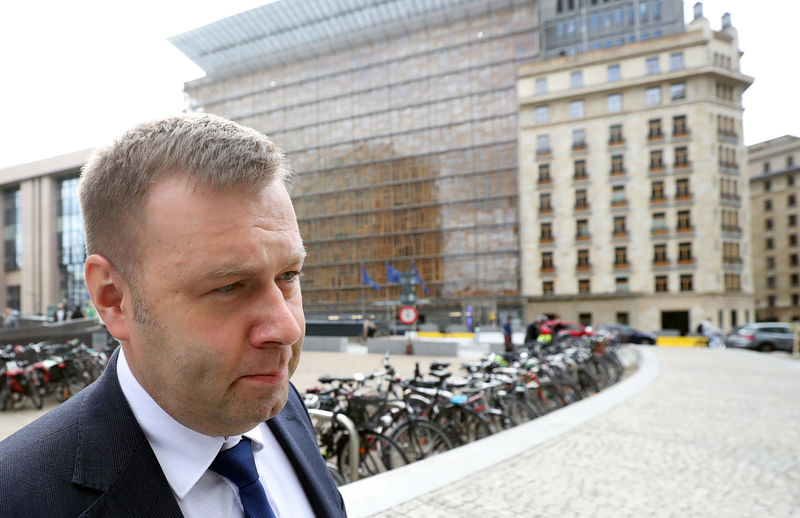By Vladimir Soldatkin, Gabriela Baczynska and Philip Blenkinsop
BRUSSELS (Reuters) - Russia and Ukraine failed to reach a new gas transit deal on Thursday, but said talks were "constructive" and they would meet again to try to find an agreement before the current one ends.
There are a number of obstacles to a deal, such as a political row between Kiev and Moscow, a pro-Russian insurgency in eastern Ukraine, and litigation between Russian gas supplier Gazprom and Ukraine energy company Naftogaz.
Ukrainian Energy Minister Oleksiy Orzhel said there was still a risk Russian gas deliveries could be interrupted and Kiev would make the necessary preparations to ensure continued supply in such a scenario.
The Russia-Ukraine gas transit agreement expires in January. Ukrainian energy authorities are worried Moscow could stop gas supplies through Ukraine, leaving some parts of the country without gas in winter.
Moscow is building new pipelines to Europe, such as Nord Stream-2 and TurkStream, to bypass Ukraine, a main route of the Russian gas to Europe.
Last year, Kremlin-controlled gas giant Gazprom (MM:GAZP) supplied Europe with more than 200 billion cubic metres (bcm) of gas, of which 87 bcm went through Ukraine, providing Kiev with valuable transit income.
Orzhel said Gazprom was seeking lower transit tariffs, which was possible if Moscow agreed to higher volumes.
STOP-GAP DEAL
His Russian counterpart, Energy Minister Alexander Novak, said he had proposed a temporary extension of the existing 10-year contract.
Ukraine is also working on changes to its energy regulations to bring them in line with EU laws.
"We proposed our partners and colleagues... to extend the current contract and sign an addendum until all the legal base, all the regulations are ready in Ukraine," Novak said near the European Commission in Brussels, where the talks were held.
Ukraine has stop buying Russian gas since the end of 2015 at the height of tensions with Moscow. Novak said gas transit via Ukraine would depend on the volumes Kiev buys from Moscow.
It was the first time the sides met since Volodymyr Zelenskiy became the president of Ukraine. Animosity between Moscow and Kiev runs high, especially since the Kremlin annexed Crimea from Ukraine in 2014 and sided with rebels fighting government troops in the east of the country.
The EU's top energy official, Maros Sefcovic, was chairing the Thursday talks in Brussels and sounded upbeat after the 40-minute, three-way meeting.
"Today we have taken steps in the right direction. In other words, there was convergence of the position on most of the issues we discussed," he told a news conference after a third round of trilateral talks in Brussels.
Sefcovic said the sides had agreed a future contract should be based on EU law and it was important that Ukraine's Naftogaz would be broken up, creating a new company to handle transit of gas through Ukraine.
"We would resume our meeting at the political level by the end of October, when I hope we will have much more progress achieved on the issues that we put on the table today," Sefcovic said.

He added Ukraine currently had 4 billion cubic metres more gas stored than at the same time last year, meaning it had more resources to draw on in case of problems.